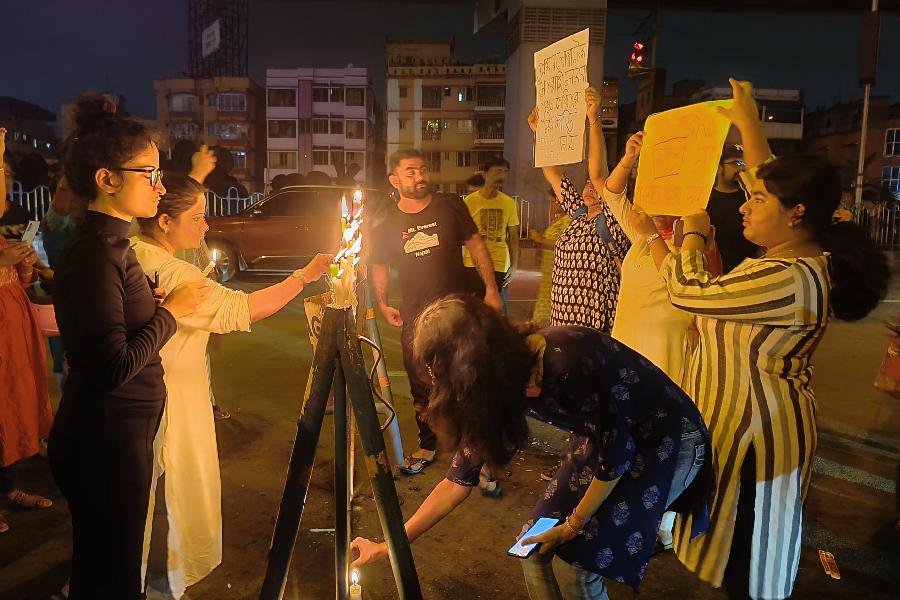A social awakening for women’s rights has been subverted by a “masculine demonstration” of political opposition on the roads, said many women who took to the streets on the eve of Independence Day to reclaim the night in the wake of the rape and murder of a junior doctor at RG Kar Medical College and Hospital.
Demands for a fair investigation and justice for the 31-year-old victim who was killed at the fag end of a gruelling night shift had triggered the protests that resonated far beyond Calcutta.
At least half a dozen women who were part of the initial protests said the demands had been relegated to the sidelines.
“The agenda was to make the system accountable and transparent and talk about the safety of all women. Safety does not mean protection of women,” said Ratnaboli Ray, head of Anjali — Mental Health Rights Organisation.
“But the women’s rights narrative has been subverted by an extremely masculine demonstration of political opposition,” she said.
Ray alluded to the misogynistic remarks in circulation that are disparaging to the dignity of women.
Paromita Chowdhury, who was at the Jadavpur protests on the intervening night of August 14 and 15, said she was out on the street to protest violence against women, which has been overshadowed by violence on the streets.
“Women are being subjected not just to physical violence but verbal attacks online and in public discourse. Traditional symbols of womanhood like bangles are being used as synonyms to signs of weakness,” the 46-year-old said.
“The political mayhem has reached such a point that nobody is bothered about the investigation,” she added.
Debalina Lahiri, 39, said a 12-hour bandh by a political party does not answer the questions of women’s safety.
Homemaker Lahiri had joined the midnight walk in Baguiati with her one-year-old daughter and eight-year-old son.
“I am not in favour of protests that would inconvenience common people. The one on August 14 took place at night and was not meant to paralyse the city,” she said.
“The atmosphere now has become such that common people are being labelled as belonging to one party or another. If you are demanding justice, you are seen as belonging to one party and if you are silent you are understood to be a rival,” Lahiri said.
Teacher Bithika Ghosh, who lives in Hazra, said the “atmosphere of protests and strikes and skirmishes” was evoking a sense of fear among people that the midnight march had been hijacked and beaten.
“We have to go to work and we cannot afford to stay back at home. But every day, when we finish work around 8pm, I hear my colleagues worried about getting stranded on the road or reaching home late. This is not what we protested for,” said Ghosh who has to attend to her son fighting a rare disease.
The nature of the movement gradually shifted from rage to brute masculinity, several women said.
The “detail-mongering” about the RG Kar victim’s posture and how her legs were found, the amount of fluids found on her, the fractures, and the number of bites on her body — much of which have proved false information — smack of masculine toxicity, said sociologist Sukanya Sarbadhikary.
“We as receivers of such details should absorb the facts and learn how to protest keeping the propriety of the victim and the society in serious consideration rather than magnifying the same event for male consumption: the maleness of which does not remain restricted to men only,” said the assistant professor of sociology at Presidency University.
“People should rise in protest but we should be reflective of its form and not compromise on the demeanour of the protests,” Sarbadhikary said.
Ray said the protests were not only for women’s safety but also for trans women and men. “We will not lose hope and continue to occupy public spaces, parks because we want justice. It’s time that the system is made accountable,” she said.
Mental health activist Piya Chakraborty said the challenge was to be in the movement despite roadblocks such as political overshadowing. “What the government needs to do is to engage with civil society and feminist organisations to look into how the system can be made better,” she said.











